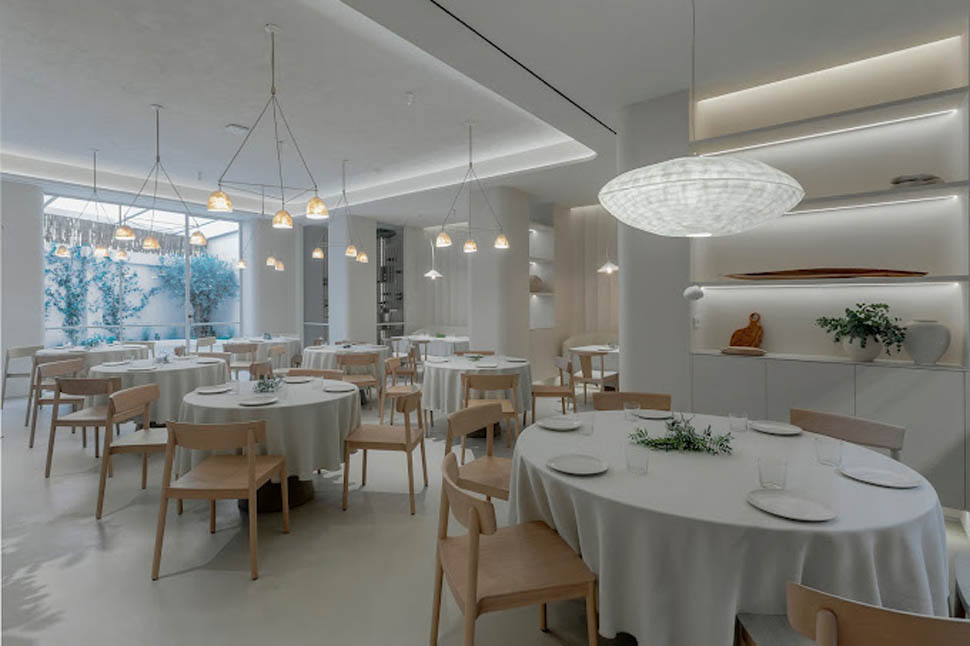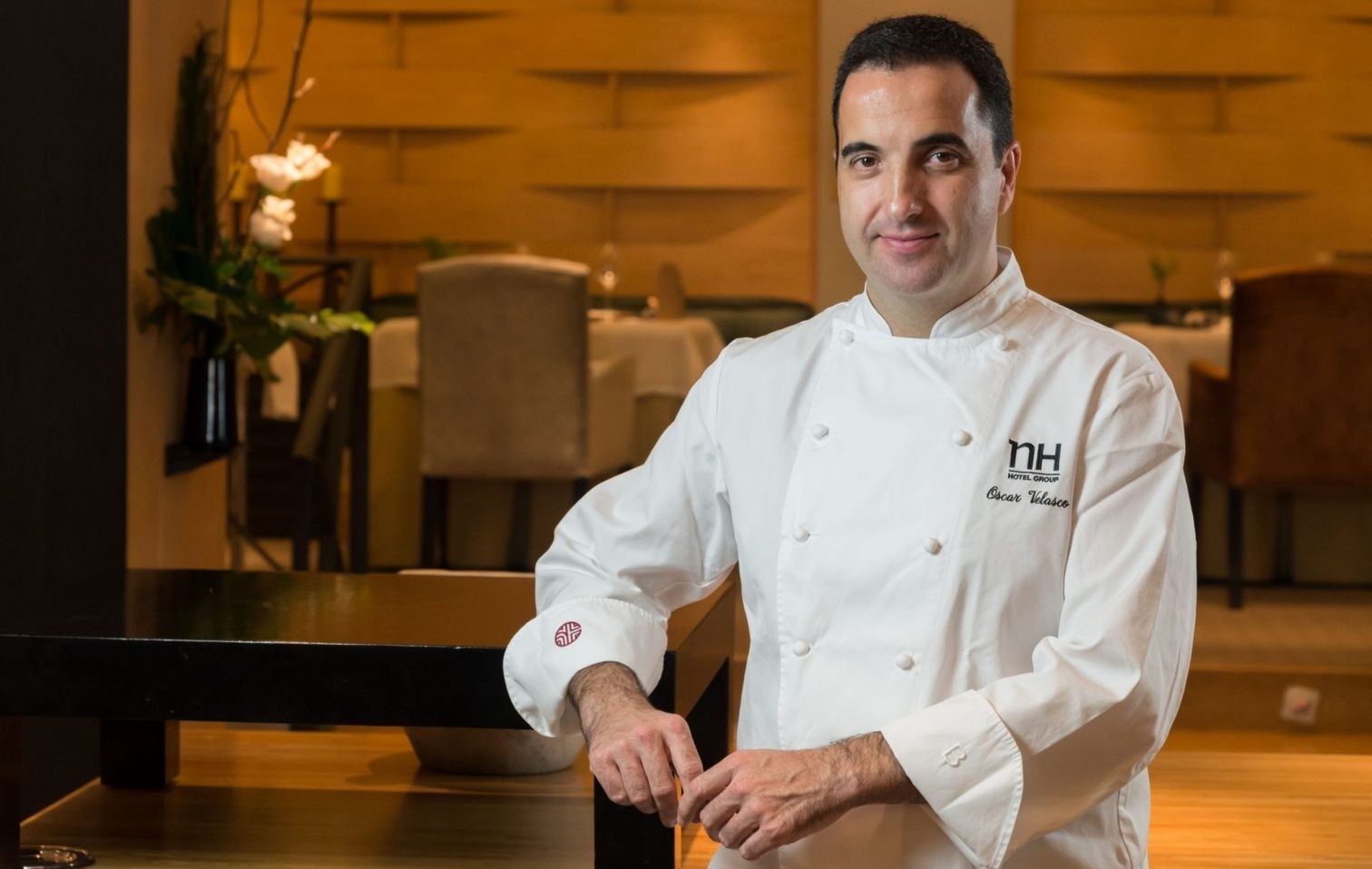After achieving fame at Santceloni in Madrid, where he held two Michelin stars with his wife and pastry chef Montse Abellà, the chef from Segovia went independent, garnering accolades within twelve months. "But this world has changed for the better, work-life balance is fundamental."
The Chef
"I am a late-blooming chef," admits Oscar Velasco, who only achieved fame in his maturity and within twelve months had already earned the coveted Repsol sun for his solo venture. Although he began cooking at 16, balancing school and the kitchen, it was after an unsuccessful attempt at university that he enrolled in the hospitality institute of Segovia, inspired by the culinary wonders of his mother and grandmother, creators of a "craftsmanship" that is being lost. From that moment, he became increasingly demanding of himself: "Every day since I started working, I feel I can do more. Sometimes it's frustrating," he confides in an interview with La Razon.
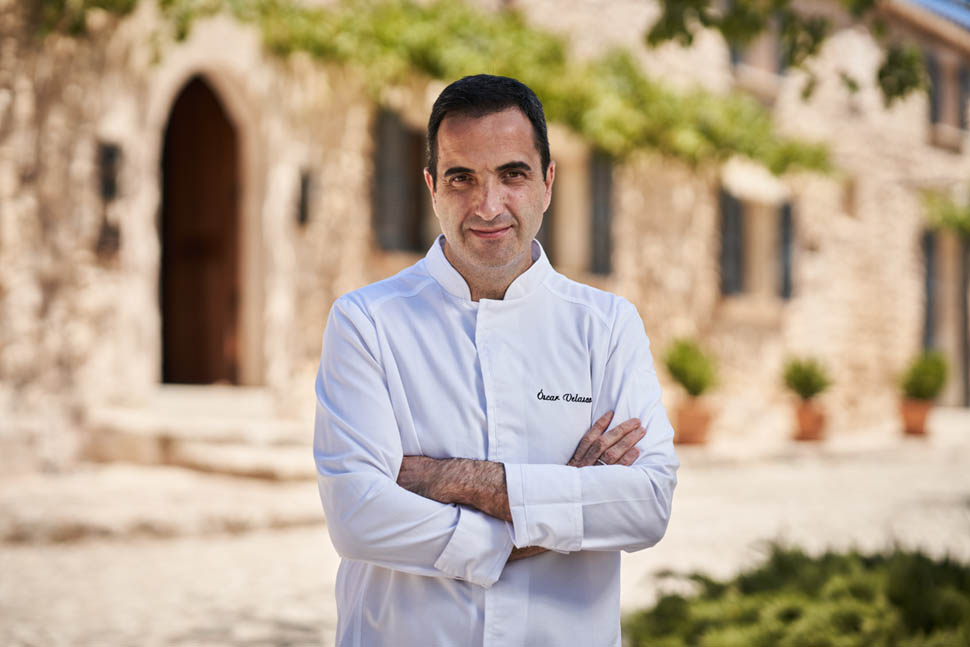
"What the kitchen takes, the kitchen gives," a professor told him. And despite a long and arduous apprenticeship, after a few seasons as a kitchen hand, he became a chef of traditional Castilian cuisine, before moving on to Cabo Mayor, now run by Berasategui, and the famous Zalacain, then with two Michelin stars. "But I always wanted to know more; I always felt it wasn't enough," he recalls. After a stint at La Concha in Segovia, he returned to fine dining, alongside Martin Berasategui at Lasarte and Santi Santamaria at Can Fabes. This was the springboard to Santceloni in Madrid, where he stayed for twenty years under the banner of two Michelin stars.
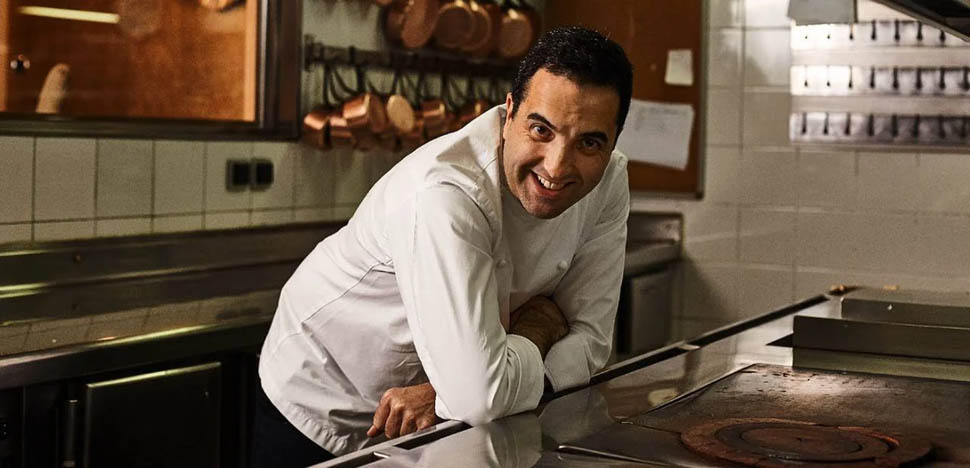
Then he decided to go independent with his wife Montse Abellà, whom he met at El Racó de Can Fabes and who was the pastry chef at Santceloni, in the Chamartín neighborhood of Madrid: "One more child, since it shares our surnames." Indeed, it is called Velasco Abellà Restaurante and offers contemporary market cuisine, as Michelin puts it, based on raw materials but with a bit more freedom, with equal technique and elegance. Without forgetting the past, as some icons of the two-star menu, such as the smoked ricotta ravioli with Ossetra caviar, remain on the menu.
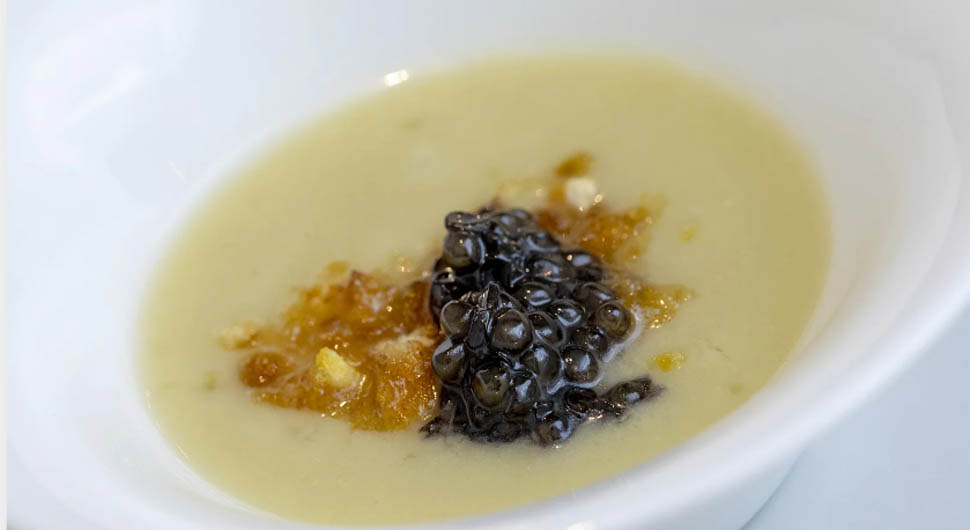
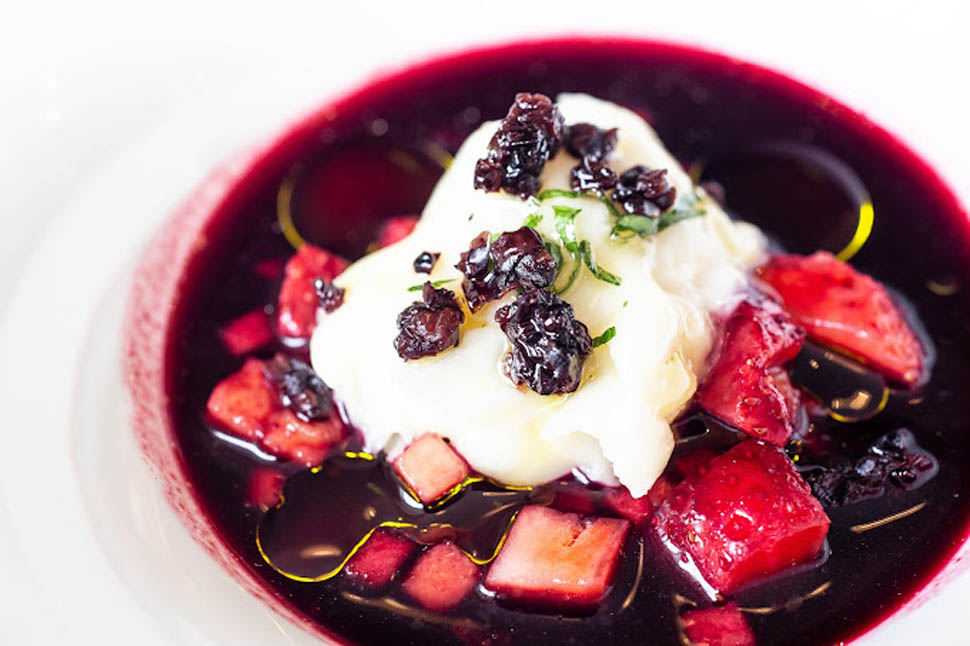
"Being able to work daily alongside the greats, observing how they organized work, and their relationship with the staff, was the most important thing," he recalls, praising their humility and dedication to work. Today, however, a new problem has arisen: the lack of staff. "But the evolution has been positive. If we want professionals, we need to regulate. You can't expect someone to work 14 hours a day. And it isn't very easy. It is essential to enjoy a good quality of life, balancing private life and work."
